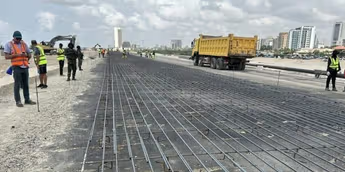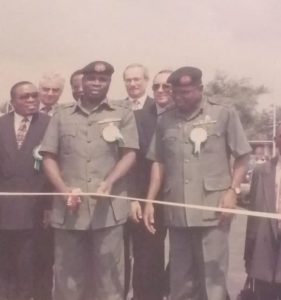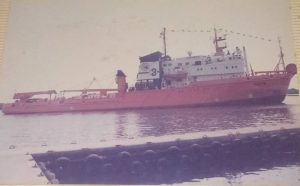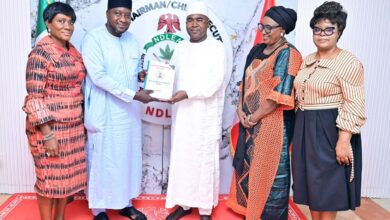Tinubu govt slashes Lagos-Calabar coastal road from 10 lanes to 6

*Echoes from the past over cables
By OUR REPORTER
Update on the muchmouthed Lagos-Calabar Coastal Road has it that the road, believed by many to be another white elephant project with unrealistic capability to complete, has been rerouted to avoid possible damage to telecommunication companies’ submarine fibre optic cables.
To this end, the Bola Ahmed Tinubu-led Federal Government, according to an announcement by the administration’s Minister of Works, Mr Dave Umahi, has reduced the road project said to ab initio devoid of impact assessment from 10 lanes to six to save cost.
Many including former Vice President Atiku Abubakar have criticised the project for lacking consultation and devoiding of impact assessment.
Had impact assessment and adequate consultations been carried out ab initio, the Tinubu government would not run into the current challenges that have plunged the project integrity further under scrutiny by the public.
The submarine fibre optic cables were laid by Major General Tajudeen Olanrewaju, now retired, while in active service as Minister of Communications during the military regime of General Sani Abacha in 1995, ahead of his commitment to free Nigerians from the monopoly of Nigerian Telecommunication Limited (NITEL).

General Olanrewaju, who brought in a special submarine cable laying ship from abroad to lay the fibre optic cables from Lagos.to Calabar, later deregulated the NITEL and, by the Head of State approval, issued licences to private operators (PTOs) such as Intercellular, Multi-Links, among other wireless telecommunication companies starting with land lines while GSM were in the pipelines, to participate.

Having now later realised the importance of the fibre optic cables and damages tampering with them will cause the economy of the nation, the Federal Government decided to reroute the coastal road to avoid possible damage to the telecommunication submarine cables.
The government also disclosed that the road project has been reduced from 10 lanes to six to save cost.
David Umahi, the Minister of Works made this known on Tuesday, June 11, 2024, at a meeting with contractors in Abuja.
According to the minister, the government has disbursed a total sum of N10 billion to Nigerians whose properties were demolished for the construction of the 700km road project.
Umahi further disclosed that the first 47km of the project would be open to the public by May next year.
The minister, however, dismissed the claim that the project has been stopped, adding that four kilometres of concrete road have been completed already.
He said, “For the three legacy projects by the administration, the Lagos-Calabar coastal highway, we have cut down the project size to six lanes, especially from sections two, three, and four, it shows you that we mean business. Some people have been writing that we have stopped the project. No project is stopped. As we are talking now, over four kilometres of concrete road has been completed on six lanes.
“We had to establish a new path due to complaints made by MTN on its subsea cable and Okuaja community, we had to reroute not to the new alignment, not to the gazetted alignment but far away from the two, and we came back to a new alignment at kilometre 25. So the work is going and it’s moving smoothly. We have paid the total compensation of close to N10bn. we are not owing and the contractor is highly commended for a very beautiful job, commitment and being very reasonable.
“These projects are investments, and they have inherent returns on investments, By May 29, 2025, we will have completed section one of the Lagos-Calabar coastal highway.”
Umahi who described the project as an investment explained that when the road is tolled, it would yield a return on cost within 10 years.









